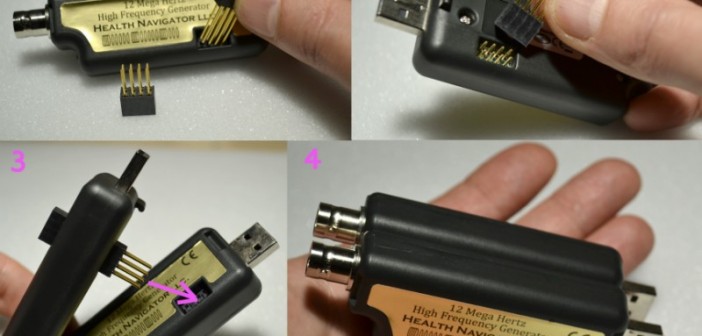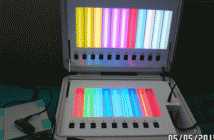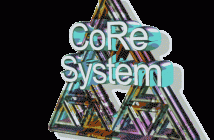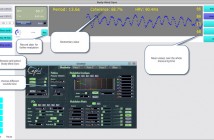This post is also available in: Chinese (Traditional), French, German, Italian, Spanish, Croatian, Greek, Hungarian, Portuguese (Brazil), Romanian
this post provides some insight into use of the new High Frequency generator – please also view our Applicator User Guide for further information on our other applicators
http://www.energy-medicine.info/documents/applicator-user-guide.pdf
Together with the new dual channel software in version 6
the new High Frequency Generator will work either in one channel or dual channel version configuration.And different then our previous HF generator it works up to 12 MHz plus it also supports different waveforms.
This will set new standards and possibilities
TENS sofar is only known for use with relatively low frequencies (http://en.wikipedia.org/wiki/Electroanalgesia and
Transcutaneous electrical nerve stimulation
Main article: Transcutaneous electrical nerve stimulation
Transcutaneous electrical nerve stimulation, or TENS, involves the transmission of electrical energy from an external stimulator to the peripheral nervous system via cutaneously placed conductive gel pads. TENS can be subclassified into two variants:
- low-intensity (1–2 mA), high-frequency (50–100 Hz) TENS; and
- acupuncture-like high-intensity (15–20 mA), low-frequency (1–5 Hz) or “dense-disperse” TENS.[9]
also the Interferencial current therapy is known only for low frequencies and amplitude modulation rather then frequency modulation as in CoRe
Interferential current therapy
Interferential current therapy, or ICT, is another variant of TENS that uses the principle of amplitude modulation to decrease the discomfort of stimulating deeper tissues (e.g., muscle) when using transcutaneously applied electrical current. A combination of different stimulation frequencies are used (i.e., one fixed at 4 kHz and another within a variable range) to generate frequencies between 4 and 250 Hz which are alleged to more effectively penetrate the soft tissues while producing less discomfort at the skin surface.[18] With ICT, its postulated mechanism of analgesic action is through direct stimulation of muscle fibers rather than peripheral nerves, allegedly improving muscle blood flow and promoting the healing process. Although ICT is used widely in the physiotherapy andrehabilitative medicine settings, there is a dearth of rigorously controlled studies to justify its effectiveness in the management of either acute or chronic pain syndromes.[7]
also I do not attribute much value to the CAFL list of frequency therapy on which basically the whole literature is based and that is considered the Bible of electric frequency therapy
FIRST because I know it is alopathic energy therapy to select frequencies by indication like chemical drugs based on what somebody has found sometime, somewhere for someone to have been benefitial.
We have the whole CAFL list and more in CoRe and many users find it very comforting to be able to select an Indication and feel that they are doing what some authority has approved but if you look at it a bit in detail you see it does not make sense in many ways for example although Rife found MHz frequencies particularly effective for cancers the CAFL list does not list MHz frequencies as almost nowhere but
funnily for Sneezing, we find the higher (although also not MHz) frequencies :
Sneezing 4334 42046 44178 49847 55687 67868 75969 35237 54778 44837 39703 31888 34112 36769 42938 38882 48686 30121 64734 44679 70542 48450
Why do we promote the High Frequency Generator a another component in the CoRe system :
1.Rife was such a supporter of Higher Frequencies for Therapy :
but almost nothing that is sold today is resembling the original Rife equipment even in the remotest way
first because he was using radio, that means non-contact application (what we do with the Plasma generator ) and
secondly the frequency range he used was in the radio short-band range witch is between 3 and 30 MegaHz (our new HFG works up to 12 MegaHz)
but also what you can see from the above photo and text – all those who sell the idea that there were specific cancer frequencies that Rife used
do not understand that at that time it was not even possible to technically produce accurate and stable RF output for this purpose – let alone measure it accurately
2. My personal experiments with frequency application in this range by applying contact electrodes at one point of the body and measuring the frequency that is transmitted to another part of the body with an oscilloscope is that in this shortwave range the body only transmits very insignificant amounts, certainly not enough to “blow up” viruses. Also the frequency is dispersed not only amplitude wise but also with respect to its frequency – therefor the idea that a specific frequency, if it could have been produced at this time at all, would be that specific frequency even only a few millimeters below the skin, is an illusion
I advocate the new HF generators therefore mainly for 2 reasons :
first that the Soundcard frequency generator that is otherwise used has a frequency range of only up to 20 KHz and the whole range is consequently only about 1/thousands of the range that is provided by the new HF generators
and
Second and to me even more importantly – all soundcards – generate low frequencies up to about 100 Hz only in a simulated fashion by amplitude modulation of a higher carrier frequency – and my experience shows that true low frequencies are what we need much more then higher ones that most are so fascinated with.
but lets remember all this is a matter of research although Rife did his work almost eighty years ago – most that has been done until now is very unsystematic and unprofessionally done – we will change this – and I need your help by giving us your feedback when you use these new HFG
 English
English 繁體中文
繁體中文 Français
Français Deutsch
Deutsch Italiano
Italiano Español
Español Hrvatski
Hrvatski Ελληνικα
Ελληνικα Magyar
Magyar Português
Português Română
Română
![2. HFG_mounted [800x600]](http://www.informationenergymedicine-academy.com/wp-content/uploads/2.-HFG_mounted-800x600.jpg)


![3. HFG_done [800x600]](http://www.informationenergymedicine-academy.com/wp-content/uploads/3.-HFG_done-800x600.jpg)
![4. HFG_GHand [800x600]](http://www.informationenergymedicine-academy.com/wp-content/uploads/4.-HFG_GHand-800x6001.jpg)


